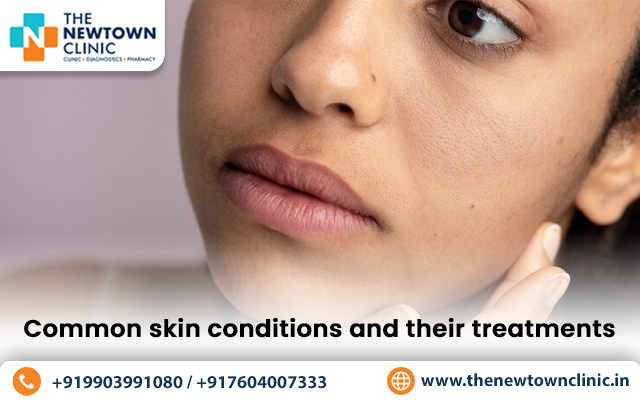Skin conditions may cause rashes, inflammation, itchiness or other changes in the skin. The best dermatologists in Salt Lake educate us regarding a few common skin conditions and their respective treatments.
Skin conditions and their treatments
The following are some skin diseases and their treatments:
- Acne
Acne develops when an individual’s hair follicles are clogged with dead skin cells and oil. It often manifests as pimples, blackheads, whiteheads, cysts or nodules. Acne may occur on the face, chest, back and shoulders. It may vary in severity from mild to severe.
Treatment for Acne
Treatment may include applying topical creams or gels that contain benzoyl peroxide, salicylic acid or retinoids to unclog pores and reduce inflammation. Oral medications such as antibiotics and hormonal therapy may be prescribed for more severe cases.
- Psoriasis
Psoriasis refers to a chronic autoimmune skin condition that enhances the growth cycle of skin cells. It results in the rapid buildup of cells on the surface of the skin, leading to thick, red and scaly patches known as plaques. Psoriasis may take place anywhere on the body but commonly affects regions such as the elbows, knees, scalp and lower back.
Consult with the best dermatologists in Salt Lake to address issues regarding your skin with accuracy.
Treatment for psoriasis
The treatment for psoriasis aims to lower inflammation, hinder the growth of skin cells and alleviate symptoms. Treatment options may include the following:
- Topical treatments like corticosteroids, vitamin D analogs, retinoids, coal tar or calcineurin inhibitors applied directly to the skin.
- Exposure to ultraviolet (UV) light under medical supervision may aid in reducing inflammation and slowing skin cell growth.
- Oral or injectable medications may also be prescribed for moderate to severe psoriasis instances.
- Rosacea
Rosacea refers to a chronic inflammatory skin condition mainly affecting the face, causing redness, visible blood vessels, bumps and sometimes pimples or swelling. It normally affects the cheeks, nose, chin and forehead. Rosacea tends to worsen over time when left untreated and often develops gradually. It may come and go in episodes of flare-ups and remissions.
Treatment of Rosacea
The treatment of rosacea involves the use of topical medications to decrease redness and inflammation. Oral antibiotics may be used for inflammatory papules and pustules.
Conclusion
To conclude, symptoms of skin diseases can be managed with medication and proper skin care including lifestyle changes. However, the above mentioned treatments are general guidelines and individual cases may require a more customized approach. Consider visiting the best dermatologists in Salt Lake to receive comprehensive care in regards to skin conditions.







